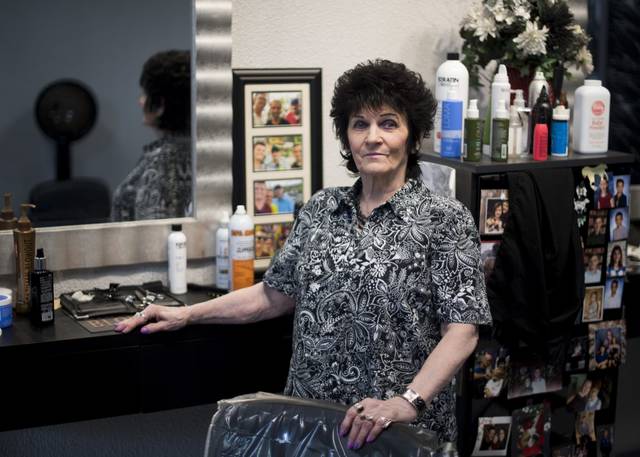https://triblive.com/local/valley-news-dispatch/going-from-red-pandemic-stage-to-yellow-wont-help-hairdressers-barbers/
Going from red pandemic stage to yellow won’t help hairdressers, barbers

David Wien’s customers are stalking him these days.
Wien owns John’s Barbershop, a small-town institution his father-in-law, John Krautbauer, opened 56 years ago across the street from the post office in Delmont. The shop closed in March when Gov. Tom Wolf issued a stay-at-home order designed to limit the spread of the coronavirus.
Wien had hoped he would be able to reopen Friday. Wolf had promised he would allow parts of the state to begin reopening then under a yellow stage status that permitted limited business operations.
“People have been reaching out to me in any way they possibly can to find out when we’ll be open,” Wien said.
They received a double dose of bad news Friday.
Only 24 counties, located in northern Pennsylvania got the nod to reopen on limited basis under the yellow stage of the three stage (red-yellow-green) system.
With the announcement that detailed Wolf’s three-stage plans for reopening the state, barbers, beauticians, manicurists and massage therapists learned they are among those who are barred from operating until the regions they’re located in reach the green stage.
Barring personal care practitioners from opening until a region is approved for green zone status could mean their shops will be closed well into summer.
For 37 years, Michael George has been a hair stylist, but now he and his mother, Dolli George, owners of Dolli’s Beautique in Springdale, are waiting to reopen.
George isn’t surprised hair salons would be last in line to open.
“We are in your face, literally,” he said.
George misses his customers, who have been buying gift cards from the salon. He has been turned down for a small business loan.
But he and his mother, who still works part-time as a hairdresser, heeded his father’s advice years ago to save for a rainy day.
George said he’ll survive.
He has already made plans for reopening when he, his mother and customers will wear masks and stations will be sanitized between customers.
“We will not have a full salon,” George said. “Maybe one or two people at a time.”
A colorist, George knows there are no short cuts for hair color appointments. However, there is a room to accommodate longer appointments.
Generally, George expects appointments to run faster, if possible.
“It’s going to be a change rather than the norm,” he said.
Linda Pollock-Iezzi, who teaches cosmetology at the Central Westmoreland Career and Technical Center, has operated a salon in South Greensburg for 25 years. She said it seems like the governor doesn’t understand the strain businesses like hers are experiencing.
Not only was Polock-Iezzi forced to shutter her salon, but her husband, a masonry and concrete contractor, also was forced to cease operations. He was cleared to return to work this week after Wolf agreed to lift restrictions on construction work, provided companies can observe Centers for Disease Control safety guidelines for operations during the coronavirus pandemic.
Pollock-Iezzi, who employs a staff of six at her salon, applied for the Paycheck Protection Program to keep them on the payroll.
“I applied and was approved, but who knows when we’re getting that? At least I own the building, so I don’t have a mortgage,” she said.
Wien, the father of two small sons, said he looked into the loans that were supposed to be available to small businesses during the shutdown, but never heard back from the Small Business Administration or his bank. He said he signed up for unemployment as soon as the portal was open to self-employed workers and received a confirmation number. But has heard nothing more and has yet to see a check.
He’s hesitant to complain.
“But if we had an end date for when this is going to over that would make it a little easier,” he said.
He and Pollock-Iezzi said they already employed extensive sterilization and sanitation practices as a matter of routine in their shops and are sure they can comply with space requirements between workstations.
“I’ve done everything I can. I called our governor, left him a message and I’ve talked to Senator (Kim) Ward,” Pollock-Iezzi said.
Ward, who has complained repeatedly about inconsistencies in the state’s process for granting waivers for businesses to remain open, is skeptical that public sentiment that has kept the shutdown in place will hold as regions begin to reopen.
She said she is hearing growing complaints from financially-strapped small businesses about what they see as gross inequities in how the administration has handled the shutdown.
“Once they start opening the barn door, I think it’s going to be pretty hard to keep people in,” Ward said.
Copyright ©2026— Trib Total Media, LLC (TribLIVE.com)
